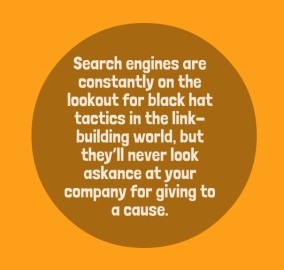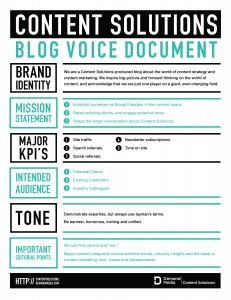For some companies, charitable giving is seen only as a means to tax benefits. Other businesses may not think about giving at all, especially when budgets are tight. Those companies are often making a mistake, however, because there’s a lot of good that can come from aligning your business with a cause.
Not convinced? Maybe these 6 reasons for corporate giving will change your mind.
Giving back is just good
Before we get into the practical benefits your business can obtain from charitable giving, let’s start with the most important one – giving back is just good. It’s good for the community, the causes you help, and frankly, it’s good for your soul.
Touchy-feely? Maybe, but don’t worry, there are plenty of pragmatic benefits for your business from charitable giving, as well.
Charitable giving can be an employee benefit
While benefits like robust health insurance, retirement plans and paid leave are still important to employees, the modern workforce is a bit more demanding. They’re more difficult to engage and, as a piece last year in Forbes points out, the focus has moved from employee retention to employee attraction. You have to continuously attract the talent you already have in order to keep reinforcing engagement.
One way you can accomplish this is by offering unique benefits that can’t be obtained at every workplace, and corporate gift matching ranks high on that list. Companies that offer employees the ability to choose a cause – and then match, double, or even triple the employee’s donation – offer their staff a method for not only contributing to causes they care about, but also for increasing the impact of that contribution. Your employees feel that their company supports the things that are important to them, and there’s no better way to keep your most passionate talent engaged.
Giving is great PR
In the information age, your customers know more about your company than they ever did before. You’re interacting with them on social media, your employees are talking about their experiences on professional networks, and the media takes notice when a business does something interesting, whether that something is good or bad.
If we’ve learned nothing from the PR issues companies like Wal-Mart and McDonalds have had in recent years, we’ve learned that consumers care where their money is going, and they don’t want it going to companies that don’t share their values and ethics. The upside of this is that while bad acts are more likely to get noticed, the good you do will also be seen.
For example, when Jonathan Carey heard about a local woman with ALS whose van had been stolen and damaged, he wasn’t thinking about publicity. As the owner of a dealership specializing in conversion vans, including wheelchair-accessible transportation, he only knew that he was in a unique position to help. He reached out to her privately, offering to repair her van for free and provide a loaner van in the interim.
Publicity wasn’t his goal, but it happened anyway. When the local media learned of what Carey and his company Classic Vans had done, they reported it to the community. His intention was to be a good Samaritan, but the additional result was positive press and an increased profile for his business.
There’s another lesson in this story, as well: when you give back, don’t do it cynically. Your goal should be helping your community. Any good will you earn is simply an added bonus.
Charitable donations can help your SEO
 Link-building is an integral part of any strong online marketing program, and the inbound links you can gain to your website through nonprofit donations are some of the best you can find. While some link-building tactics can be hit-and-miss in terms of effectiveness, the links you can obtain from nonprofit sponsorships and donations are unassailable.
Link-building is an integral part of any strong online marketing program, and the inbound links you can gain to your website through nonprofit donations are some of the best you can find. While some link-building tactics can be hit-and-miss in terms of effectiveness, the links you can obtain from nonprofit sponsorships and donations are unassailable.
Visit the website of most nonprofits and you’ll find a list of their sponsors with links to sponsor websites. Look at nonprofit pages dedicated to special events and you’ll find even more links thanking the businesses that donated funds and items to help the event happen. Nonprofits do this to show their appreciation, and good fundraisers know that the more recognition they provide to the businesses that support them, the more likely they are to receive continued support.
Search engines are constantly on the lookout for black hat tactics in the link-building world, but they’ll never look askance at your company for giving to a cause.
Volunteering can be a team-building activity
Some businesses spend an awful lot of time and effort on employee events that are little more than social gatherings, and something else you should know about the modern employee is that they don’t necessarily want to socialize with their coworkers outside of the workplace. Many employees will attend these sorts of events because they feel compelled, but they’ll quietly resent that you have forced them to give up their precious free time for something they essentially view as work.
On the other hand, working together on a volunteer project can help your team learn to cooperate in new ways, and since they are doing something worthwhile, it won’t feel like time wasted or stolen, but an opportunity to do good.
There’s always that tax deduction
If nothing else here has convinced you that charitable giving is a worthwhile pursuit for your company, then do it for the tax deduction. Make sure the cause you’re giving to is IRS-approved, and you’ll be able to write off not only monetary donations, but also in-kind donations (donations of goods and services) and time your employees spend volunteering.
Bottom line: There are more reasons your company should engage in charitable pursuits than there are arguments against it. So get out there and give back!
Digital & Social Articles on Business 2 Community(105)






